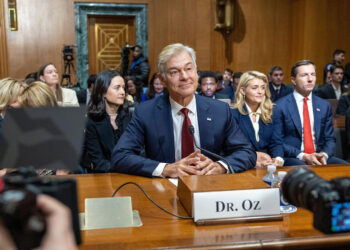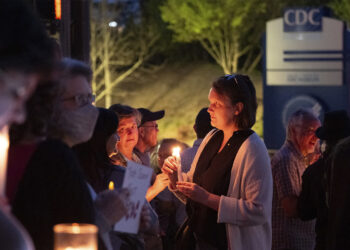Did you know that 1 in 5 people worldwide would face a cancer diagnosis in their lifetime? Cancer is the leading cause of death in nearly half of the countries in Latin America and the Caribbean. However, preventable risk factors account for at least 40% of cancer cases and approximately 45% of cancer-related deaths. This emphasizes the need for primary prevention.
Drawing from the 17 recommendations of the Latin American and Caribbean Code Against Cancer developed by regional experts, Medscape’s Spanish edition has prepared a series of actionable New Year resolutions. These resolutions are based on the latest evidence on lifestyle, environmental, occupational, and infection risk factors and medical interventions.
How can someone make lifestyle changes, particularly when starting far from a healthy routine?
Julia Ismael, MD, a clinical oncologist and former director of the National Cancer Institute of Argentina, emphasized that adopting healthier habits is not only simple but also achievable. She suggested focusing on small, actionable steps that can be implemented immediately, rather than waiting for a perfect moment to make significant changes.
“Start moving little by little, begin to incorporate some activities related to a healthy lifestyle and checkups, and receive vaccines for cancer prevention.”
Instead of instilling fear of cancer, Ismael advocated highlighting the accessibility of preventive measures that anyone could implement. These strategies not only help prevent cancer but also combat noncommunicable chronic diseases.
Eduardo Cazap, MD, PhD, founding president of the Latin American and Caribbean Society of Medical Oncology, noted that modern medicine should prioritize protecting healthy individuals from illness rather than solely focusing on treating it. As former president of the International Union Against Cancer, he pointed out that health systems and medical education often center on curing the sick. “Medicine today is not just that. Medicine today is about protecting healthy people from getting sick,” he stressed.
Cazap also highlighted the importance of influencing patients’ families and their environments to foster positive change.
“If we don’t stop the growing wave of disease, doctors will face an increasingly limited capacity to treat people,” he warned.
“Children born today will probably live to be 100 years old, and the only solution is to have fewer sick people. This must be sought through education, information, and prevention,” he added.
10 Resolutions of the Year
1. Quit Tobacco
Avoid smoking or using any form of tobacco or e-cigarettes and ensure a smoke-free environment at home. Tobacco is linked to approximately 20 types of cancer.
2. Limit Alcohol
There is no safe level of alcohol consumption, which is associated with several types of cancer. Avoid sugary drinks and opt for water.
3. Stay Active
Engage in daily physical activity and minimize the time spent on the couch. Staying physically active and maintaining a healthy weight can prevent approximately 20 types of cancer.
4. Eat Healthy
Limit the consumption of red meat, processed meats, sweets, sugary cereals, salty snacks, pastries, cookies, and other ultraprocessed foods. Focus on natural foods, home-cooked meals, fruits, vegetables, and legumes such as beans and lentils. Choose whole grain options for bread, tortillas, and rice.
5. Manage Beverage Temperature
Avoid very hot drinks, such as coffee and tea, to reduce the risk for esophageal cancer. Drink coffee or tea at a cooler temperature, when the liquid no longer burns your lips or tongue.
Protect yourself from direct sun exposure during peak hours to prevent skin cancer.
6. Breastfeed
Breastfeed for as many months as possible to reduce the risk for breast cancer.
7. Get Screened
Early detection of colorectal cancer is recommended for individuals aged 50-74 years. Current evidence supports a biennial fecal occult blood test as the initial screening method, with follow-up colonoscopy for those with positive results. Additionally, performing at least one colonoscopy between the ages of 50 and 74 years has been shown to reduce mortality from colorectal cancer.
Women should undergo clinical breast examinations every 2 years starting at age 40 and a mammogram every 2 years from the ages of 50-74. Additionally, for those aged 30-64 years, molecular testing for human papillomavirus (HPV) is recommended every 5-10 years.
8. Vaccination
Ensure vaccination against hepatitis B and HPV in family members. These viruses, as well as the HIV, for which there is still no vaccine, can lead to cancer.
9. Use Condoms
Make sure you use condoms correctly and consistently. Condoms help prevent infections from viruses that cause cancer. Get tested for HIV and find out about prevention and treatment programs available in your country.
10. Be Cautious
Approach hormone replacement therapy for menopause with care. It is only used under medical advice, as it may increase the risk for breast cancer.
Recommendations for Public Policy
The Latin American and Caribbean Code Against Cancer also offers public policy recommendations to support these resolutions, including:
- Discourage the consumption of tobacco, e-cigarettes, alcohol, and unhealthy foods, and drinks by supporting tax policies and health warning labels on packaging, as well as the prohibition of advertising, promotion, and sponsorship.
- Create healthy environments in schools and public spaces by prohibiting tobacco and alcohol use and promoting access to healthy foods and physical activity. Facilitate breastfeeding and ensure access to drinking water.
- Incorporate quality physical education into school curricula and encourage an active lifestyle.
- Discourage breast self-examination; instead, ensure access to reliable mammograms and clinical breast examinations performed by appropriately trained health professionals. Encourage regular screenings and treatments for colon cancer, rectal cancer, and Helicobacter pylori infections.
This story was translated from Medscape’s Spanish edition using several editorial tools, including AI, as part of the process. Human editors reviewed this content before publication.
Source link : https://www.medscape.com/viewarticle/10-actionable-resolutions-combat-cancer-new-year-2025a10000oj?src=rss
Author :
Publish date : 2025-01-13 08:40:12
Copyright for syndicated content belongs to the linked Source.














